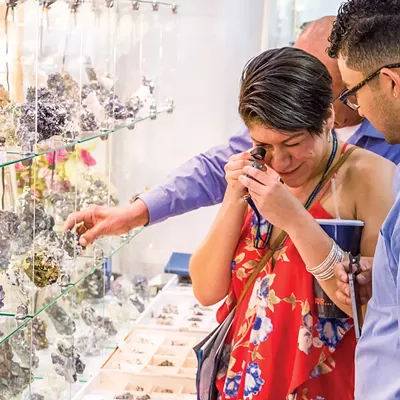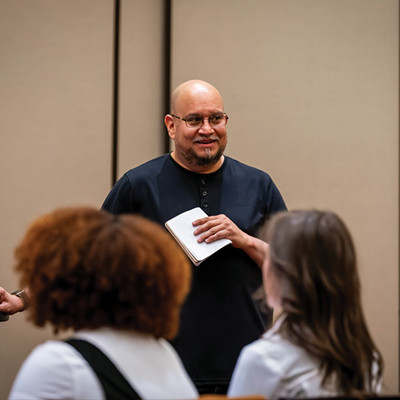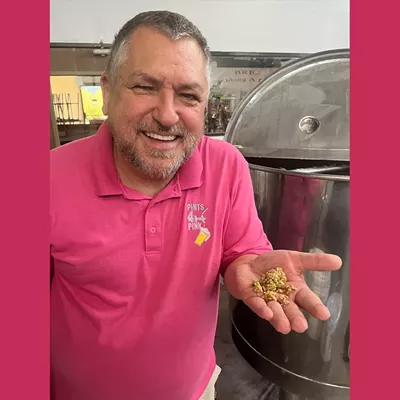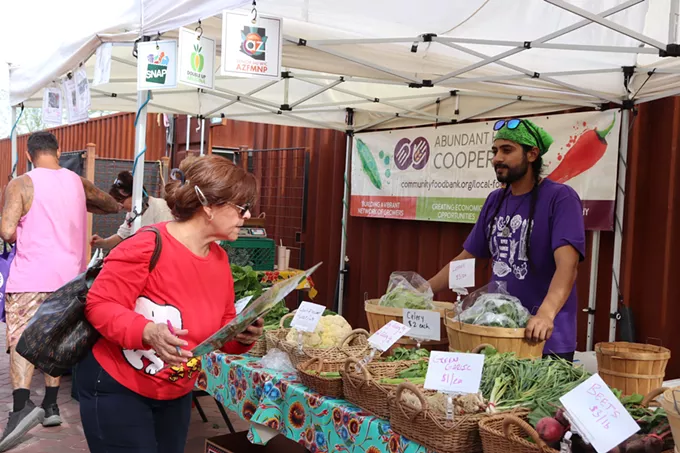
It’s been a weird year for cat ladies.
Just ask Diane Siefkes of Tucson’s Hermitage No-Kill Cat Shelter & Sanctuary.
As the nonprofit’s development and communication coordinator, Siefkes oversaw Hermitage’s social media in the aftermath of Republican vice presidential nominee J.D. Vance’s comments blaming the nation’s problems on “a bunch of childless cat ladies who are miserable at their own lives.”
That prompted a wave of memes and social media posts from the Democratic side celebrating “childless cat ladies,” including some from stars like Taylor Swift and Jennifer Aniston, who defiantly embraced the label.
Then there were Donald Trump’s false claims that Haitian immigrants in Ohio were “eating the dogs” and “eating the cats,” resulting in AI-generated images showing the GOP presidential nominee rescuing cats and portraying him, contrarily, as a kind of cat ladies’ champion.
What’s a donor-supported cat shelter to do?
“We had a chat about, ‘What do we want to do with this cat lady thing?’” Siefkes said. “And in the end, we didn’t do anything. Because here’s the reality: Anybody who comes here, nine times out of 10, they’re crazy cat ladies. But we have donors who don’t vote the way we do, and as a nonprofit, we can’t afford to alienate anyone.”
Siefkes does allow that while the “childless cat lady” memes, T-shirts and other merch gained significant online traction, all of that did not translate into substantial real-world support for cat shelters and animal welfare organizations.
“We have gotten new donors. Can I attribute that to the cat lady effect?” she said, with a laugh. “But at the same time, our adoption rates are down. Last year we took in 775 cats and adopted out 716. As of last month, we’ve taken in over 600 cats and only adopted out 537.”
Does that mean fewer people are choosing to become cat parents? “I don’t know,” she shrugged with a heavy sigh.
Hermitage is just one of many Tucson nonprofit organizations now finding themselves navigating heightened challenges while holding on to hope in the wake of a tumultuous election cycle.
Particularly for charitable organizations that focus on civil liberties, human rights, social justice and environmental protection, the political shifts of this past month have intensified demand for services, tested donor engagement and raised concerns about funding sustainability.
Yet, across the board, nonprofits in Tucson are responding with resilience and a renewed focus on their missions.
“The result of the election may impact the availability of essential funding and resources that the Southern Arizona AIDS Foundation (SAAF) requires to facilitate programs,” said the organization’s grants manager, Jason Brown. “However, SAAF is firm in its mission and understands the profound impact it has in the lives of its clients.”
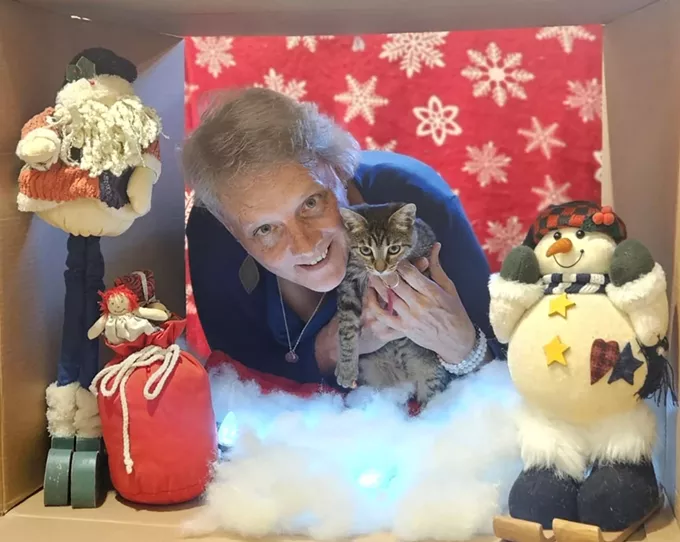
Some charity boosters, like actor Jeff Bridges, the celebrity face of No Kid Hungry, have recently expressed hope that those discouraged by the election’s results will go “looking for a community that shares (their dream of how the world could be,” aligning themselves with like-minded charitable organizations.
Brown said SAAF has not yet seen any such impact on charitable giving towards their programs and services, but added, “SAAF has received support from other organizations that have made it known they will continue to stand by SAAF and support SAAF in their mission. SAAF is cognizant, as I am sure other parallel organizations are, of the potential impact federal spending cuts could have on the HIV/AIDS healthcare sector and other social services programs. The impact the election may have on individual gifts will be determined by the increase or lack of donations at the end of the year.”
Norma Cable, public relations manager for the Community Food Bank of Southern Arizona, expressed similar concerns, highlighting a troubling 22% increase in demand over the past year.
“We rely on community support to keep our doors open and our trucks on the road,” she said, noting that the organization operates four resource centers that serve about 170,000 people each year along with mobile distributions to rural areas, school pantries, partner agencies and other projects.
Despite the increased demand, Cable remains hopeful.
“People want to fight hunger in our area. A third of the people we serve with emergency food are children, and 20% are seniors. In general, people can relate to the issue of food insecurity.” Apart from donations, Cable said volunteers continue contributing about 100,000 hours of valuable time each year. “Some volunteers tell us they have received many good things in their life, and now is ‘payback time.’”
Even the Reid Park Zoo has faced challenges in its mission to connect people with animals and inspire conservation in our new political climate.
“The threats to wildlife, from habitat loss and climate change to pollution — like plastics in the ocean — can feel overwhelming,” said Rue Pieper, the zoo’s communications coordinator. “Our role is to break down these challenges into everyday choices that everyone can make.”
She said that in the past year, more than 620,000 people visited the zoo to connect with giraffes, lions and elephants and believes many left inspired to play an active role in conservation.
“We know the profound impact that experiencing the majesty of a lion, for example, can have on guests, inspiring them to take action to protect these amazing animals.”
For the Community Foundation for Southern Arizona (CFSA), the focus remains on long-term solutions to community challenges. “We connect donors to the causes they care about,” said Monique Conway, director of marketing and communications.
Some of those causes serve populations that may now feel endangered by the changes in political leadership. Conway shares a testimonial from a young student named Maria, whose immigrant family may now face new threats.
“As a first-generation American, college-bound Latina student from a low-income immigrant household, receiving this scholarship means I can achieve my post-secondary goals of becoming a family doctor and serve my Southern Arizona community,” she wrote. “This scholarship will help with gaining that experience, create those memories, and overall support the financial burden I face with the cost-of-living expenses while also fulfilling my dream of giving back to my community.”
For others, like the families served by Jewish Family & Children’s Services of Southern Arizona, the charged political climate has given rise to fears of heightened religious persecution.
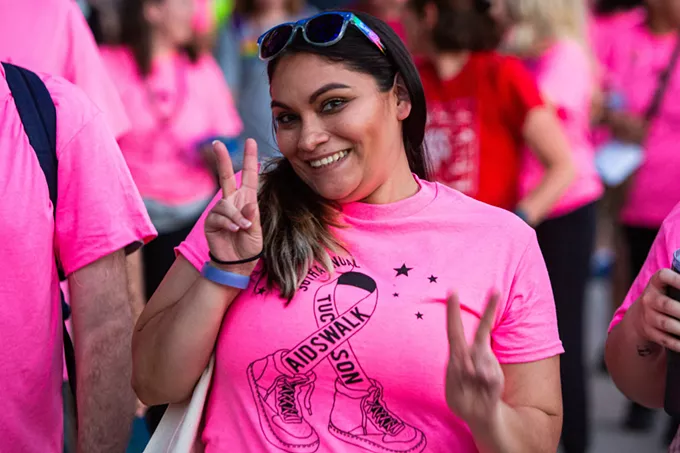
“For over 80 years, JFCS of Southern Arizona has stood as a beacon of hope and healing for the community’s most vulnerable members,” said marketing director Jessica Mattix.
“We’ve delivered expert behavioral health and community services to neighbors in their darkest hours — whether they are children overcoming trauma, older adults needing support, or families lacking basic necessities. When someone gives to JFCS, they are not just supporting an organization; they are investing in a proven legacy of compassionate, professional care that transforms lives across Southern Arizona.”
As Tucson’s nonprofits navigate these new challenges, they remain steadfast in their missions. From feeding families and sheltering vulnerable animals to educating the public and advocating for social justice, these organizations depend on the community’s support to thrive, and count on that to continue – no matter how bad a beating basic kindness and compassion took in the last election.
“You’ve got to hang on to hope that yes, people will still donate,” Siefke said. “Do I think it’s gonna be a hard time for nonprofits? Yes, I do.”


